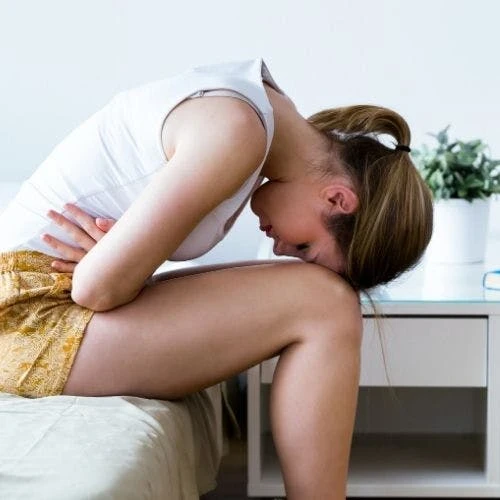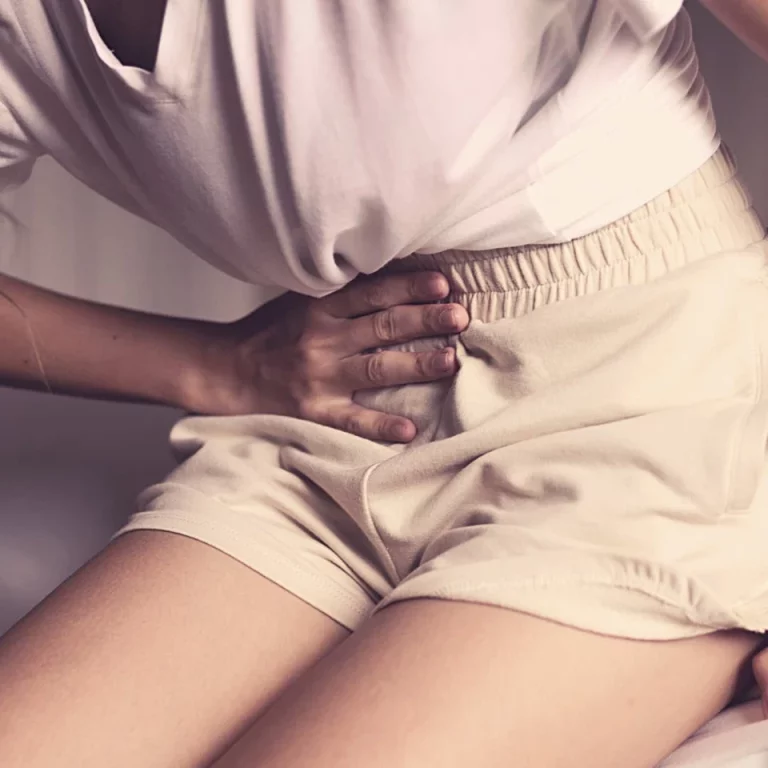Heavy Periods – What Are The Common Causes?
Why is my period so heavy?
Heavy periods, called Menorrhagia in medical terms, can occur due to a variety of factors. Menorrhagia refers to menstrual periods with prolonged or abnormally heavy bleeding.
If not managed properly, women with heavy periods may develop more than normal blood loss due to which their risk of anemia, fatigue, and infertility can increase considerably. It may also cause significant mental stress and make them prone to depression. [1]
Hence, there is a need to understand why heavy periods occur so that they can be managed in an appropriate manner. Here is a brief discussion about the common causes of prolonged and heavy periods and heavy periods with clots.

What are the causes of heavy periods?
Hormonal imbalance
Hormone imbalances caused due to conditions such as polycystic ovary syndrome (PCOS), insulin resistance, obesity, and thyroid problems can lead to heavy periods.
Dysfunctions of the ovaries
Ovarian dysfunctions can prevent the release of an egg during menstrual cycles. As a result, the body does not produce adequate levels of a hormone called progesterone during menstrual periods. This can lead to hormone imbalances and result in menorrhagia.
Uterine polyps
Polyps are tiny growths that occur along the lining of the uterus due to which women may get heavy and prolonged menses.
Uterine fibroids
Uterine fibroids are a common causes of heavy or prolonged menstrual bleeding.
Fibroids are the noncancerous or benign tumors formed in the uterus. These abnormal growths usually appear during the childbearing years of women. [2]
Adenomyosis
In some women, heavy periods can occur due to adenomyosis, a condition that occurs when the glands in the endometrium become embedded within the uterine muscles. Women with adenomyosis may also experience severe pain during menses.
Related: Tampon Toxic Shock Syndrome
Intrauterine device (IUD)
Heavy and prolonged menses could also be a side effect of nonhormonal intrauterine devices (IUDs) used for birth control. However, you may choose alternative birth control measures if you develop heavy periods due to IUDs.
Pregnancy complications
A single menstrual cycle with the heavy and late flow could be due to a miscarriage. Women may also develop heavy vaginal bleeding during pregnancy due to the unusual location of the placenta or something more dangerous like an abruption. It may occur as a result of conditions like placenta previa or low-lying placenta. If you have any vaginal bleeding when pregnant head to an emergency room or your obstetrician’s office right away [3]
Cancer
In elderly women, extensive vaginal bleeding may occur due to uterine or cervical cancer. It is more common in postmenopausal women. Diagnostic methods like Pap smear or a biopsy can help in the detection of these cancers at an early stage.
While vaginal bleeding due to cancer can not be considered heavy periods, any bleeding after menopause must be checked out for the correct diagnosis of the underlying causes.
Endometriosis
Endometriosis, a disorder caused due to the abnormal presence of the tissue lining the uterus called endometrium outside the uterus, can cause heavy and painful periods. [4]
Medications for heavy periods
Depending on the cause of heavy periods, women may be advised to use medications such as hormonal or other medications in order to treat the underlying cause and symptoms. [5]
Conclusion
Heavy periods can be treated by identifying the underlying abnormality responsible for it. The treatment should be aimed at eliminating the cause if at all possible. Getting this treated as soon as possible reduces the risk of anemia, mental stress, emotional distress, and other complications related to menorrhagia and even increase the chances of conception in women of childbearing age. Also, it is always good to make sure your symptoms are not caused by something more serious so always call your doctor when you have concerns.
References:
1. https://www.mayoclinic.org/diseases-conditions/menorrhagia/symptoms-causes/syc-20352829
2. https://www.health.harvard.edu/womens-health/heavy-bleeding-fibroids-and-polyps
3. https://www.urmc.rochester.edu/encyclopedia/content.aspx?contenttypeid=90&contentid=p02437
4. https://www.nhs.uk/conditions/heavy-periods/
5. https://www.mayoclinic.org/diseases-conditions/menorrhagia/diagnosis-treatment/drc-20352834
We discuss products we think are useful to people. If you buy something through our links, we may earn a commission. Remember to check with your personal physician to see if a product recommended is right for you.








